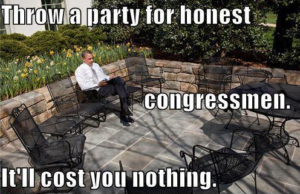In Tennessee atheist are excluded from public office. This is not a joke, and is unconstitutional. But they aren’t the only group excluded. Read on to find out just how odd the laws for public office are in Tennessee.
As we have seen in other facts, many laws around the world have some bizarre quirks in them that were once suited to the time period that they were enacted, but now make little to no sense, and are even comical in some cases. The Tennessee constitution is one of them. The constitution of Tennessee has its roots planted firmly in the past. To get a firm idea of how much the state constitution needs modernization you need only look at the the qualifying exclusions of government office bearers. If you are a US citizen and want to run for office in the state of Tennessee there are a few requirements that you must meet or else you are excluded from holding a government position.
Firstly, the state constitution excludes anyone who has had any participated in any way whatsoever with a duel, which would have excluded Abraham Lincoln. A duel is a little old fashioned and I am sure if anyone did partake in a duel they would surely be charged with a criminal offence. But the next two exclusions of government office are a little more perplexing.
The second excluded group are ministers of all religions because they “ought not be diverted from the great duties of their functions.” Although this may seem unfair, it does have some merit in separating church from state, even if that isn’t the real purpose of the section. The third makes little sense at all, but may be to placate those affected by this law.
The state constitution of Tennessee excludes atheists from holding public office. Whether this was an attempt to appease religious groups who were also excluded from holding office or not remains an unanswered question.
Although the state constitution excludes atheists and ministers from holding office, the Supreme Court of the United States has ruled that these restrictions are unconstitutional.








